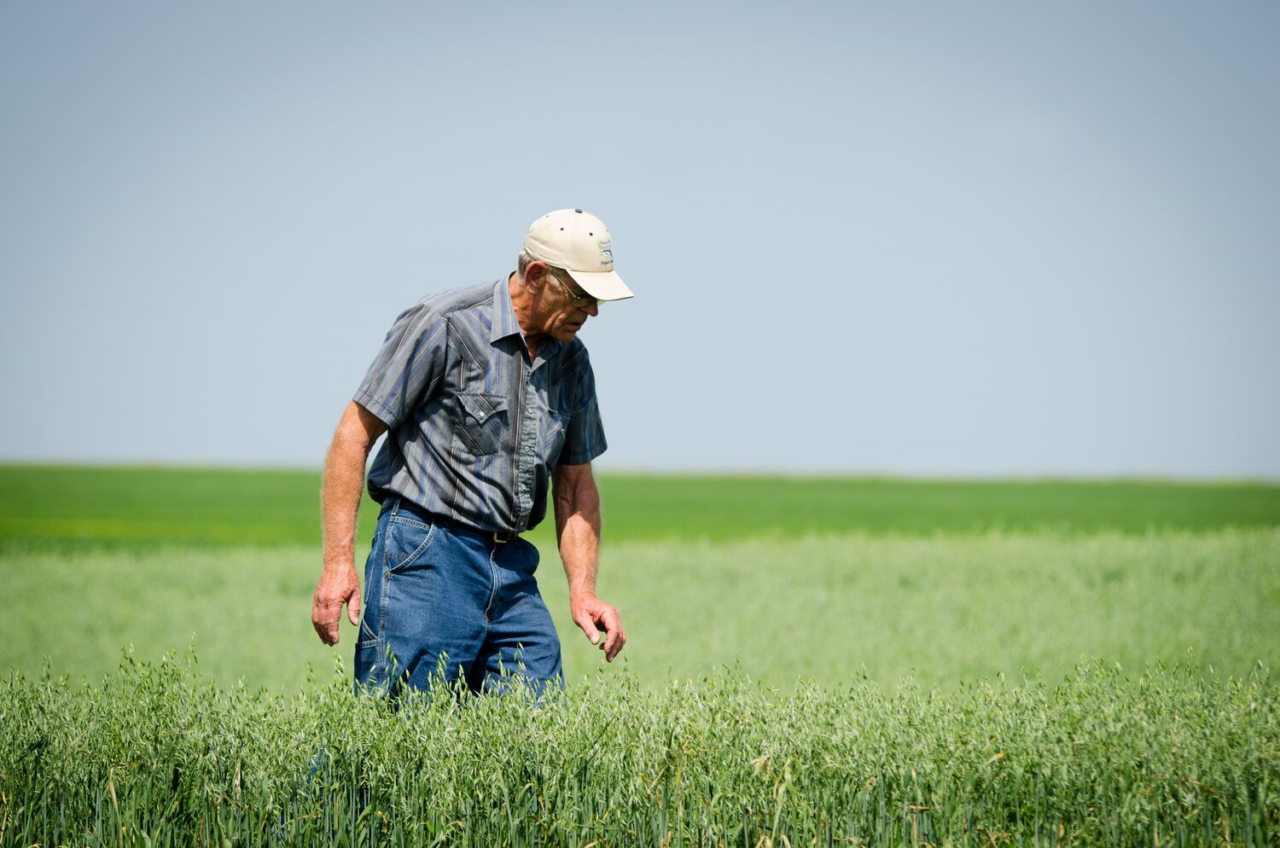For Kansas grain producer Oren Holle, the intention to farm was early and lasting. “When I was in high school, only one thing was clear in my mind about my future,” says Holle. “I would be a farmer.”
A fifth-generation grower, Oren helped his father manage herds of dairy and beef cattle, grain crops, laying hens, and pastured hogs. Those days, agrarian traditions tended towards more sustainable and socially just local food systems.
Reflecting, Holle recalls how this diversified, ecologically based approach to farming began to change in the late 60’s. The route trucks quit running in rural northern Kansas and milk processing started going the way of bulk tanks. Holle recounts his own decree; he intended to be married, but not to a herd of Holsteins.
Inheriting the family business, Oren and his brother, Leland, retrenched the farm, turning it into a successful certified organic grain operation. Their yields of wheat, corn, soybeans, oats, and alfalfa fed their own beef cattle, and were sold on the larger market, supporting other organic livestock producers.
In the early 90’s, transitioning to organics was not the path of least resistance for a crop farmer. Organic grains did not command the premiums that they do in today’s market, and the policies and practices surrounding organic growing were still taking shape.
But Holle recalls, “It was clear that the new technologies of that time were a band-aid approach. The problems of insect and weed pressures were not being solved by the emerging technologies in agriculture, so we chose to go a different route.”
Transitioning to organic came naturally to the Holle family; they had always been intimately connected to the whole farm ecosystem, carefully observing their footprint on the land each year. The shift was made easier by the presence of innovative organic farmers in their community, passionate about sharing their experiences and willing to mentor.
Holle remembers a late summer afternoon visiting John Vogelsberg. That sunny day, Vogelsberg was cultivating his organic corn crop. “He shut down the whole operation to spend the afternoon with me talking about his passion for sustainable agriculture,” he recalls.
This was a turning point for Holle—a viable alternative was within reach. More than just a fad, organic farming offered an economic opportunity to cut input costs, while providing greater ecosystem services and other benefits to his rural community.
Over time, Holle became deeply rooted in the organic movement. Not only did he build his own farming interests but, through cooperation and collaboration, Holle contributed greatly to regional, national, and even international organic grain markets.
From his early involvement in the National Farmers Organization and Kansas Organic Producers, to his enduring leadership at Organic Farmers’ Agency for Relationship Marketing (OFARM), Holle has helped develop these markets by bringing needed pricing and marketing information to organic producer groups and establishing long-term relationships among farmers who support true organic principles.
Today, Holle has scaled back his beef cattle operation and manages 155 acres of certified organic grains. He is a fierce advocate for maintaining the integrity of the organic label, currently advancing the resistance against the organic checkoff and working to hold the National Organic Program (NOP) accountable to overseeing imported ‘organic’ grains.
Holle and the network of family farmers who have worked hard to develop a thriving organic grain market have significant concerns regarding the quality of imported grains. Some are disgusted with the NOP, its lack of an auditing trail and process for confirming production sources. Holle notes, “There are two parts to that. One, we seriously question whether they are doing the job they have the power to do. And, secondly, whether they have the power to do the job that they need to do.”
Imports are driving down the market prices of domestically produced organic grains, demand pushed by the industrialization of organic production.
Research into the integrity of these organic products is lacking and, for some transactions, it’s questionable whether the grain is even organic to begin with. Organic pioneers like Oren Holle, who have worked hard to provide the highest quality food available, deserve a level playing field.


